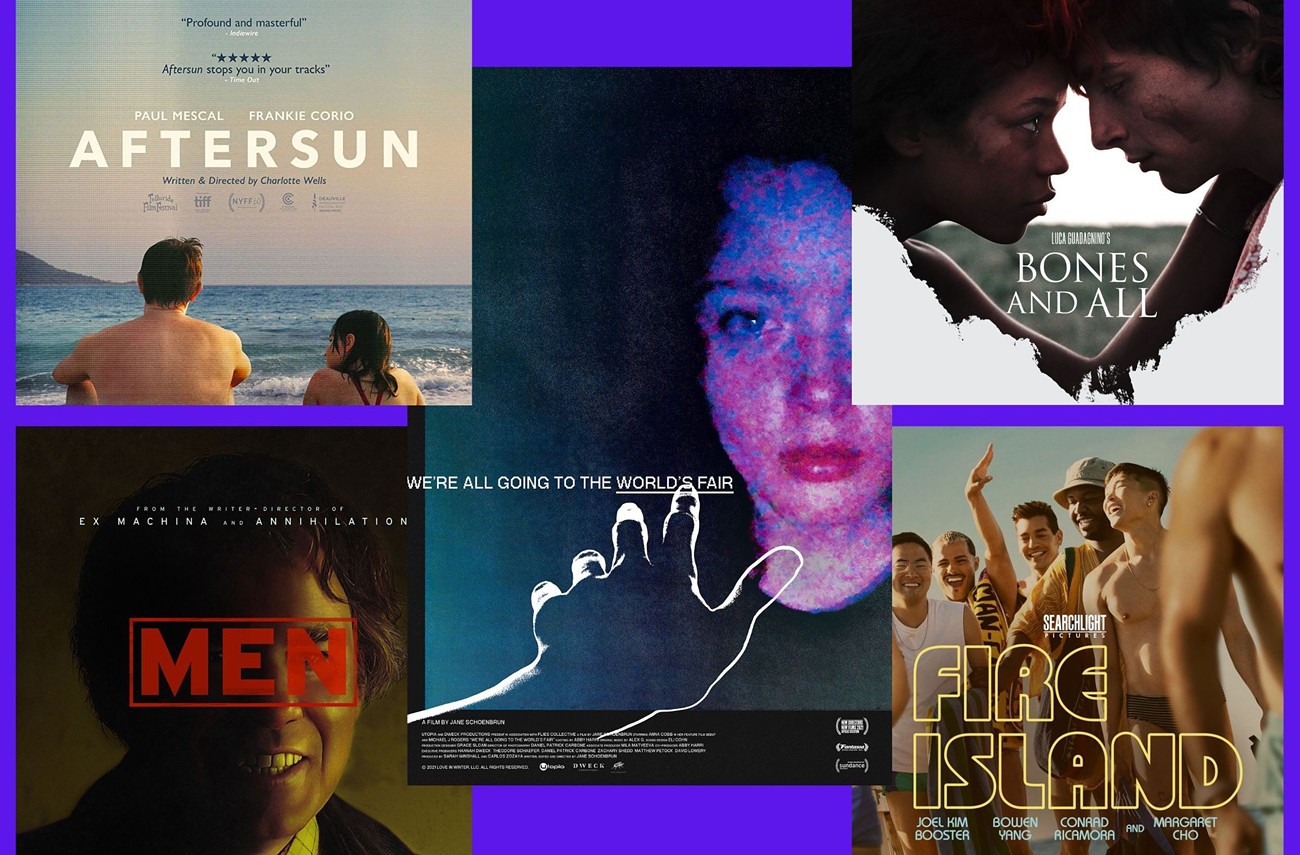Here in the pre-awards season, there are plenty of good movies in theaters. But some of our favorite films of 2022 didn't even grace those buttery halls. Here are a few gems that the Mercury’s culture crew particularly enjoyed.
We’re All Going to the World’s Fair, dir. Jane Schoenbrun
If we’re being honest, most films about the Internet can be a bit cringey in how they misunderstand the way it has come to shape our lives. That's what makes writer-director Jane Schoenbrun’s We’re All Going to the World’s Fair such a breath of fresh air, even as it subsequently threatens to rip it right out of you. Though the film largely takes place in the single attic bedroom of Casey (Anna Cobb), an isolated young person taking part in an online challenge, it taps into something far more expansive about the loneliness and liberation we stumble into online. There's a temptation to describe World's Fair as a horror film, but it defies any such easy categorizations in how it slowly, yet determinedly, burrows its way into your psyche. A precise character study, a reflection on identity, and just a generally stunning cinematic meditation to let wash over you, Schoenbrun has crafted an evocative experience that will endure the test of time. CHASE HUTCHINSON
Bones and All, dir. Luca Guadagnino
A reunion of actor Timothée Chalamet with the director who arguably launched his career trajectory that led him to his current stardom—via 2017's Call Me By Your Name—Bones and All is a love story of a decidedly different flavor. The film premiered at the 79th Venice International Film Festival to a 10-minute standing ovation—loved despite, or perhaps because of (?), all the cannibalism. Yes, this is the cannibalism movie you've heard about, but when the time comes for the cannibalism, it feels natural enough. As the sexually-fluid Lee, Chalamet plays more of a supporting role than leading man. The heart of the film is rooted in Taylor Russell as Maren, an 18-year-old teenager, recently abandoned and going boldly into a nostalgic, anonymous backroads America. Though a portion of the film's strengths lie in its mysterious pocket of meaning—I'm sure all this cannibalism represents something—it's Maren's firm tone in the face of fear, especially towards her deeply unsettling stalker, Sully (Mark Rylance), that really firmed this up as a favorite film. SUZETTE SMITH
Fire Island, dir. Andrew Ahn
Set aside your Bros discourse for a moment. The idea it tried to convey—self-aware interrogation of gay men’s aversion to and desire for monogamous romance WHILST navigating economic, masculinity, and body politics—was better conveyed earlier in the year, via the broke millennial take on Jane Austen’s Pride and Prejudice that was Fire Island. Scripted by and starring Joel Kim Booster, as Noah, the pacing and campy characters recall '00s gay rom-coms like Not Another Gay Movie, but also see infusions of insightful dialogue, sexy chemistry, and charming, modern gay cultural presentation. And the star-studded cast (Margaret Cho, Bowen Yang, et al.) delivers Booster's one-liners and devastating reads with the ferocity / friendship they deserve. ANDREW JANKOWSKI
Aftersun, dir. Charlotte Wells
There have been plenty of coming-of-age stories that see the world through the eyes of a child, but few are as revelatory as Aftersun. The debut feature from writer-director Charlotte Wells, Aftersun is comprised of a collection of such small interactions on a vacation between Calum (Paul Mescal) and his daughter Sophie (Frankie Corio). The drama unfolds delicately, capturing memories in a manner that is both melancholic and mesmerizing, as if the moments you're seeing are ones you have encountered personally and that you now see slipping away. Completely shattering yet never showy, Aftersun is an experience measured in its presentation and monumental in what it reveals about the quiet tragedies of life. CH
Men, dir. Alex Garland
You don't want to see Men with men, if you can avoid it. The last thing anyone wants to hear, in the afterglow of Alex Garland's lush horror film is a man revving up his "not all men...." A film that walked on eggshells for its entire tight 100-minute runtime—from weird-shape-in-the-window to terrifying-man-baby-vomiting-in-your-weekend-rental—Men plays societal micro-aggressions and big, violent aggressions like a finely tuned harp. If Men were to be viewed as a performance piece that interacts with the audience's life in more ways than one simple, passive viewing, the first part would be laughing at the trailer during previews, and the second would be watching the film itself. The third act of the experiential piece that is Men is definitely critics who are men reviewing Men. I'm in partial admiration of a man boldly stating that he doesn't get Men. That's confidence goals. SS
The Mercury's Favorite Books of 2022
The Mercury's Favorite Records of 2022
Best Bites from Portland Chefs and Restaurants in 2022



















